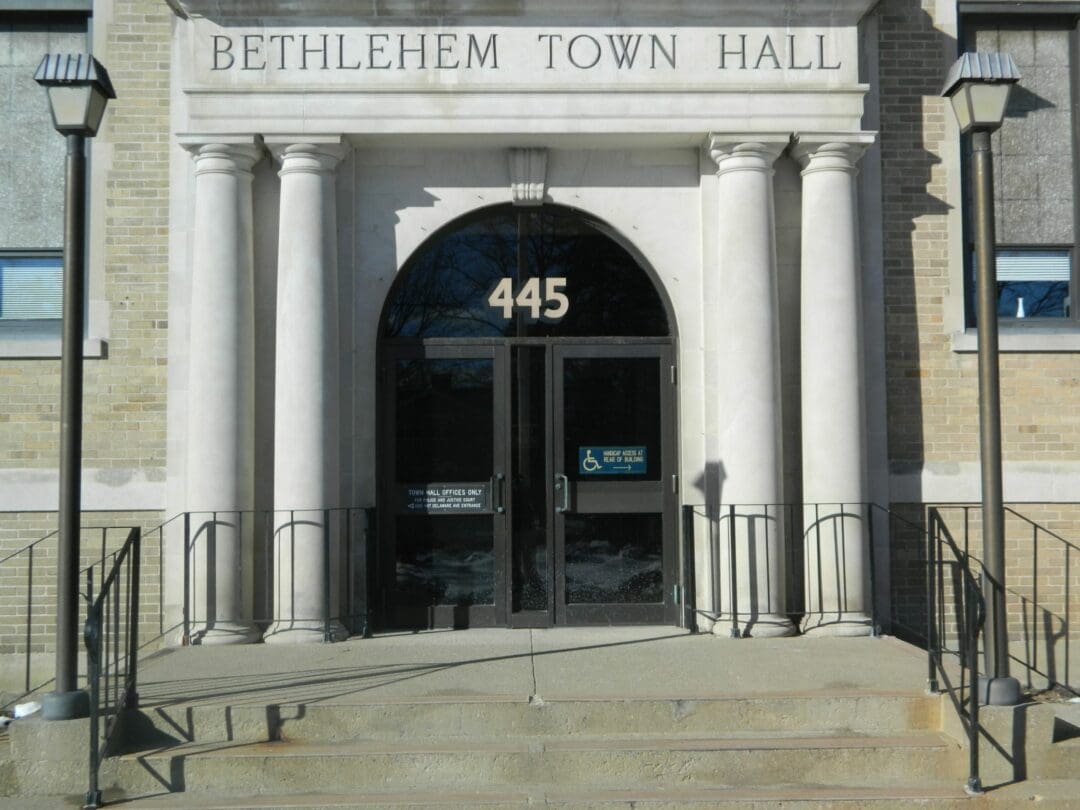#RealEstate #Taxes #TransferTax #DiegoCagara #SpotlightNews
BETHLEHEM — Assemblywoman Patricia Fahy and state Sen. Neil Breslin each said they will not reintroduce a controversial real estate transfer tax bill proposed last year by then-Town Supervisor John Clarkson.
Had the bill been passed, it would have authorized the town “to establish community preservation funds; authorizes the town of Bethlehem to impose a real estate transfer tax with revenues therefrom to be deposited in said community preservation fund.” The tax, of up to 2 percent, would have funded the town’s open space programs and help conserve land.
For the bill to have been passed, it would first have to be presented before town residents.
Fahy said she will not move forward with the bill “unless I have a specific court request from the town.” She said similar bills had been successful in other areas of the state and that it could be a statewide legislation but judging from the raised concerns of Bethlehem residents, seeing it passed in the town is doubtful.
Some residents raised concerns over a perceived lack of transparency. Others took issue with whether the eventual collected money would indeed fund open space programs, its possible infringement on property rights, and potentially hurting the town’s real estate landscape.
Another concern was that collected funds would not actually fund open space programs and instead be used for something else, like a different department, cause or even aid illegal immigrants — the latter of which was expressed by one resident during an informational meeting, organized by the Bethlehem GOP, revolving around the bill at the Bethlehem Public Library back on Thursday, Oct. 11.
Within the bill itself, it states the funds would preserve the town’s community character by helping to preserve open space; establish parks, nature reserves, or other recreation areas; preserve land with rich agricultural or scenic value, among others. All its functions are nature- and environmental-oriented, with no mention of using it for any other means.
Fahy said it was “unfortunate that there are people who are missing the merits of what the bill’s underlying goals were. We live in hyper-political times but these were well-intentioned initiatives. We want to make sure Bethlehem continues to have great quality-of-life standards and I saw this bill as part of that continuum.”
Speaking of “hyper-political times,” the aforementioned library meeting — attended by several figures like VanLuven, Foster, as well as Dan Coffey and James Carriero who are running for Town Board on Nov. 6 — was variably perceived by some, including VanLuven, as an avenue where the bill was discussed in an underlying political tone.
Breslin said that he had also “talked to a number of people about it and they have misinterpreted the bill itself and made it much more political.” He noted that whenever a local political official requests the introduction of a bill, Breslin, as a senator, does not “play the role in determining what’s good or bad.”
He also expressed disappointment whenever people get “excited and mischaracterize” a bill, and “it gets annoying when people use it for political gain.”
Foster, who has expressed his opposition to any real estate transfer tax, said that it’s “certainly fantastic news” that how the bill will not get reintroduced. He has proposed instead that the town should consider a new bill that would establish a community preservation fund without the tax aspect, and accept private donations or contributions from willing residents.
He hoped that the town government has learned to continue being transparent with the pubic with regards to any proposed bill and have public discussions, which did not immediately happen with this past bill. While he also appreciated the confirmation that it was Clarkson who proposed the bill indeed, he did not see the bill as a partisan issue.
“Regardless of what political party someone follows, everyone does not like taxes,” he added. “When a new tax is proposed, it’s amazing to see the community come together and disregard their political ideologies and oppose it. By in large, people don’t like taxes.”
VanLuven, however, saw the focus on the transfer tax bill as “a distraction from town addressing real issues” like road work improvements, helping people in need, traffic congestion and rising development. He brought up how the meeting had occurred just four weeks away from the town’s upcoming election.
“The bill died in 2017 and is no longer on the table,” he said. “Let’s stop wasting our time with divisive politics and let’s get down to business, dealing with real issues in our town. This has been dividing the town at a time when we should be bringing the community together. We’ve seen this sense of divisive politics at the national level, it’s the last thing we need at the local level.”



